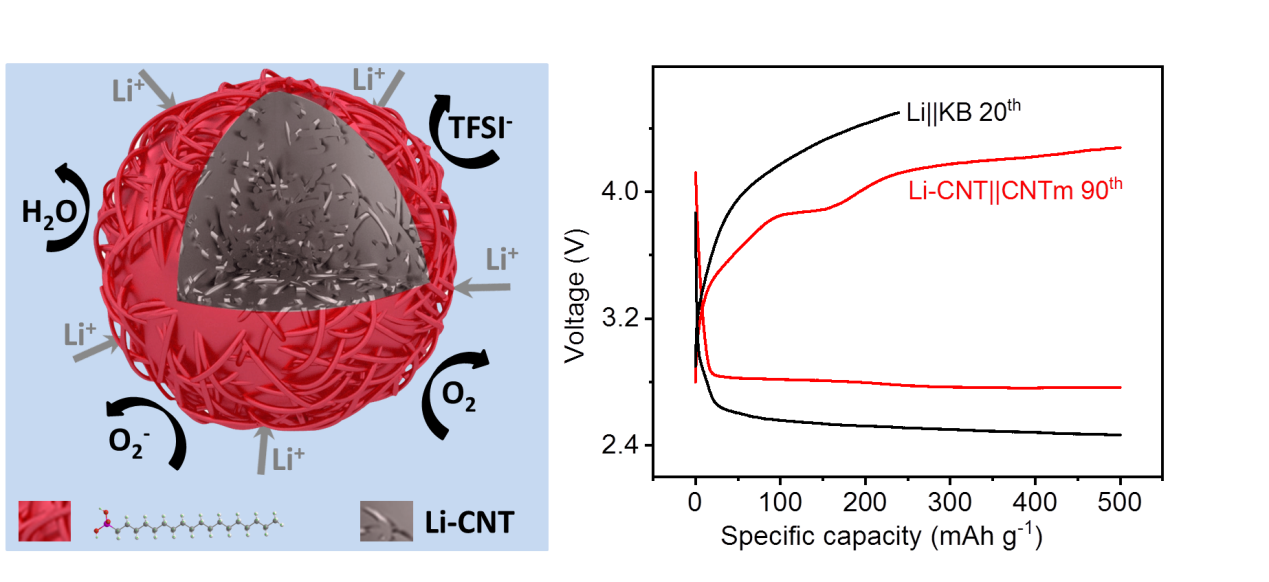Li-oxygen (Li-O2) battery is touted as the ultimate battery because of its highest theoretical specific energy among all known battery chemistries. In the past decade, tremendous research effort has focused on the air cathode. However, the all-important Li-metal anode is somewhat left aside, constituting one of the biggest barriers to progress in the field of Li-O2 battery. The parasitic reaction between the Li-metal anode and dissolved O2 in the electrolyte is one of the most important issues concerning about the Li-metal anode in Li-O2 battery. Therefore, efforts to suppress this parasitic reaction are recognized of paramount significance.
Recently, Prof. CHEN Liwei (Suzhou Institute of Nano-Tech and Nano-Bionics) and Prof. PENG Zhangquan (Changchun Institute of Applied Chemistry) from Chinese Academy of Sciences have reported that the parasitic reaction between the Li-metal anode and the electrolyte with dissolved O2 in Li-O2 battery can be significantly suppressed via using an advanced Li-CNT composite material with tailor-designed surface passivated layer as an alternative to the Li-metal anode, which not only significantly enhances the electrochemical reversibility but also doubles the cycle life of the resultant Li-O2 cells, as compared with the benchmark of Li-O2 cells with a configuration of Li | 1.0 M LiTFSI TEGDME | KB. Moreover, they utilized a variety of advanced characterization tools to understand the working principles of the reaction interface of the Li-CNT | electrolyte solution, and revealed that an oxygen-tolerant and stable solid-electrolyte interphase (SEI) has been formed.
Besides to be used as a high-performance alternative anode of aprotic Li-O2 batteries, the Li-CNT composite can also be applied in other high energy density batteries such as all-solid-state, lithium-sulfur, etc.
This work entitled " An Advanced Lithium Metal-Carbon Nanotube Composite Anode for High-Performance Lithium-Oxygen Batteries" was recently published in Nano Letters.
This work was supported by the National Key Research and Development Program, the Ministry of Science and Technology of China (Grants No. 2016YFA0200703, 2016YFB0100100 and 2016YFB0100102), the “Strategic Priority Research Program” of Chinese Academy of Sciences (Grant no. XDA09010600), and the National Natural Science Foundation of China (Grant nos. 21625304, 21733012, 21825202, 21605136, 91545129, and 21575135).

Schematic illustration and performance of the Li-CNT composite. (Image by SINANO)
Contact information:Prof. CHEN Liwei, Suzhou institute of Nano-Tech and Nano-Bionics, Chinese Academy of Sciences.
Email:lwchen2008@sinano.ac.cn
Reference: https://pubs.acs.org/doi/10.1021/acs.nanolett.9b02560.

